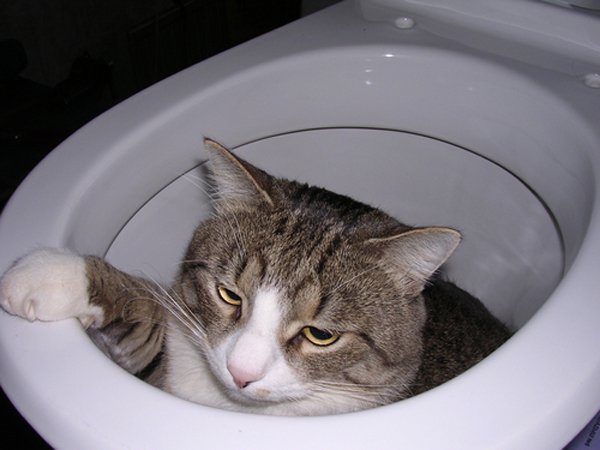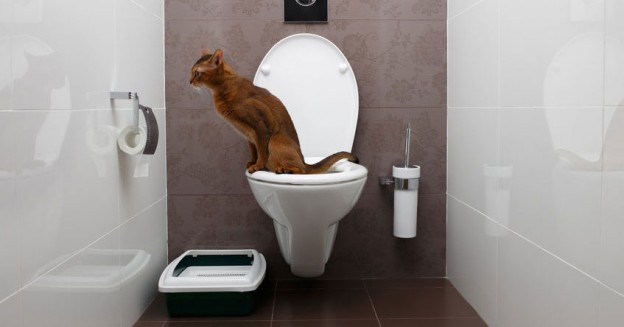Avoid Flush Cat Poop Down Your Toilet - Safeguard Your Plumbing System
Avoid Flush Cat Poop Down Your Toilet - Safeguard Your Plumbing System
Blog Article
We have uncovered this great article relating to Don’t flush cat feces down the toilet listed below on the net and accepted it made good sense to relate it with you on my blog.

Intro
As feline owners, it's essential to be mindful of exactly how we dispose of our feline close friends' waste. While it might seem hassle-free to purge cat poop down the toilet, this practice can have detrimental consequences for both the environment and human wellness.
Alternatives to Flushing
The good news is, there are more secure and extra liable means to take care of pet cat poop. Take into consideration the complying with options:
1. Scoop and Dispose in Trash
The most common technique of dealing with pet cat poop is to scoop it into an eco-friendly bag and toss it in the garbage. Make sure to use a dedicated clutter inside story and throw away the waste quickly.
2. Use Biodegradable Litter
Go with eco-friendly feline litter made from materials such as corn or wheat. These clutters are eco-friendly and can be safely disposed of in the garbage.
3. Hide in the Yard
If you have a yard, take into consideration hiding feline waste in an assigned area far from vegetable yards and water resources. Be sure to dig deep adequate to avoid contamination of groundwater.
4. Install a Pet Waste Disposal System
Buy a family pet waste disposal system specifically made for feline waste. These systems use enzymes to break down the waste, minimizing odor and ecological effect.
Health Risks
Along with environmental problems, flushing pet cat waste can likewise pose wellness dangers to human beings. Feline feces might include Toxoplasma gondii, a bloodsucker that can trigger toxoplasmosis-- a possibly serious ailment, especially for pregnant ladies and individuals with damaged immune systems.
Ecological Impact
Purging feline poop presents hazardous virus and parasites right into the water supply, presenting a significant threat to aquatic environments. These contaminants can negatively influence marine life and compromise water top quality.
Conclusion
Accountable family pet possession prolongs past providing food and shelter-- it additionally entails proper waste administration. By avoiding purging cat poop down the bathroom and selecting different disposal methods, we can lessen our ecological footprint and safeguard human health and wellness.
Why Can’t I Flush Cat Poop?
It Spreads a Parasite
Cats are frequently infected with a parasite called toxoplasma gondii. The parasite causes an infection called toxoplasmosis. It is usually harmless to cats. The parasite only uses cat poop as a host for its eggs. Otherwise, the cat’s immune system usually keeps the infection at low enough levels to maintain its own health. But it does not stop the develop of eggs. These eggs are tiny and surprisingly tough. They may survive for a year before they begin to grow. But that’s the problem.
Our wastewater system is not designed to deal with toxoplasmosis eggs. Instead, most eggs will flush from your toilet into sewers and wastewater management plants. After the sewage is treated for many other harmful things in it, it is typically released into local rivers, lakes, or oceans. Here, the toxoplasmosis eggs can find new hosts, including starfish, crabs, otters, and many other wildlife. For many, this is a significant risk to their health. Toxoplasmosis can also end up infecting water sources that are important for agriculture, which means our deer, pigs, and sheep can get infected too.
Is There Risk to Humans?
There can be a risk to human life from flushing cat poop down the toilet. If you do so, the parasites from your cat’s poop can end up in shellfish, game animals, or livestock. If this meat is then served raw or undercooked, the people who eat it can get sick.
In fact, according to the CDC, 40 million people in the United States are infected with toxoplasma gondii. They get it from exposure to infected seafood, or from some kind of cat poop contamination, like drinking from a stream that is contaminated or touching anything that has come into contact with cat poop. That includes just cleaning a cat litter box.
Most people who get infected with these parasites will not develop any symptoms. However, for pregnant women or for those with compromised immune systems, the parasite can cause severe health problems.
How to Handle Cat Poop
The best way to handle cat poop is actually to clean the box more often. The eggs that the parasite sheds will not become active until one to five days after the cat poops. That means that if you clean daily, you’re much less likely to come into direct contact with infectious eggs.
That said, always dispose of cat poop in the garbage and not down the toilet. Wash your hands before and after you clean the litter box, and bring the bag of poop right outside to your garbage bins.
https://trenchlesssolutionsusa.com/why-cant-i-flush-cat-poop/

As a fervent reader on How to Dispose of Cat Poop and Litter Without Plastic Bags, I figured sharing that portion was really helpful. Sharing is caring. You won't know, you might be helping someone out. I value reading our article about Don’t flush cat feces down the toilet.
Course Detail Report this page